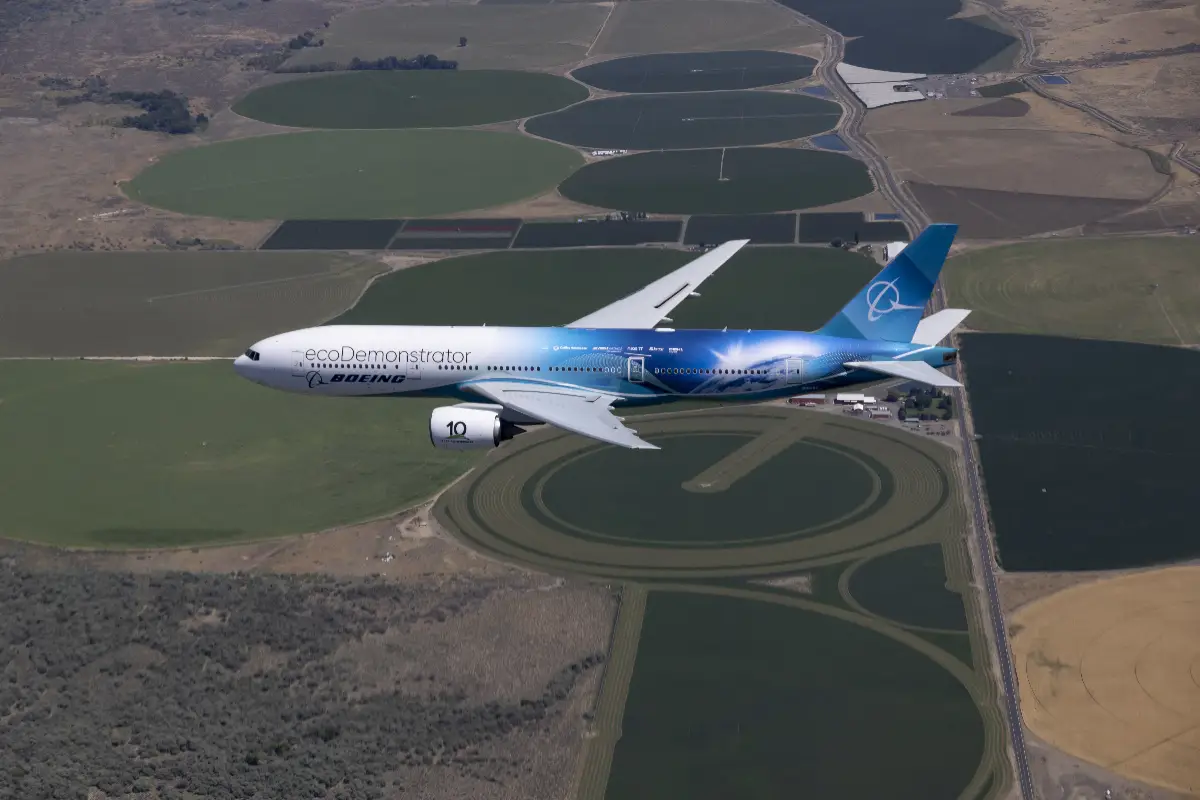
ecoDemonstrator program to test new technologies
To improve cabin recyclability and operational efficiency

Other projects focus on single-engine taxi and digital taxi tests to reduce fuel usage and enhance safety
Boeing is testing three dozen technologies on its ecoDemonstrator program focused on strengthening operational efficiency and sustainability in cabin interiors, one of the most challenging parts of recycling an airplane. The company will begin testing this month using a B-777/200ER (Extended Range).
The projects include:
Airport operations: Testing to enable single-engine taxi and digital taxi clearances to reduce fuel use and enhance safety by reducing pilot workload
Airport noise: Quantifying the benefits of flight operation procedures, like steeper glide slope and continuous descent approach, to reduce community noise, fuel use and emissions
Waste-reducing materials: Lighter, recyclable and more durable floor coverings and recycled carbon fiber ceiling panels – both made with 25% bio-based resin
Noise and weight reduction: Cabin insulation to better reduce noise and regulate humidity and temperature, and fabric-covered acoustic panels for the bulkhead and galley
Future cabin concepts: Economy and business class seats with sensors that detect if someone is seated during taxi, takeoff and landing which can improve safety, and reduce crew workload and downtime for maintenance; a touchless water conservation lavatory; and galley technologies to make cabin service more efficient and reduce food waste
Four of the cabin technologies will be featured at the "2024 Aircraft Interiors Expo" in Hamburg, Germany from May 22-24. Since its initial flights in 2012, almost every platform of the Boeing ecoDemonstrator program has flown on Sustainable Aviation Fuel (SAF), and this year, the flagship airplane will fly on a 30/70 blend of SAF and conventional jet fuel.
AVIONEWS - World Aeronautical Press Agency